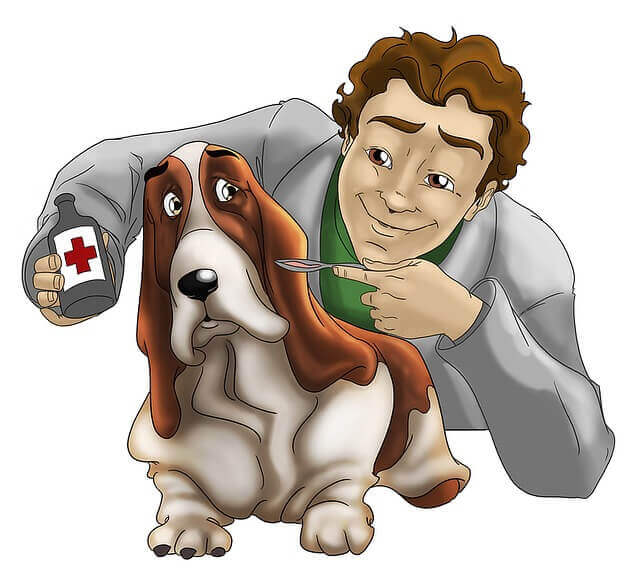
Like many breeds, Shih Tzus are particularly vulnerable to hip dysplasia. This skeletal condition is caused by a misalignment between the ball and socket of the joint, resulting in pain, swelling, and mobility restrictions around the hip area.
For owners looking to help their pups deal with the symptoms of hip dysplasia, here are five tips covering exercises, supplements, and healthcare options. While they were created with Shih Tzus in mind, they’re also relevant to any dog suffering from joint issues.
What exactly is hip dysplasia?
Dysplasia happens when the ball and socket in the hip joint become separated and no longer function properly. Sometimes the space between the two parts of the joint will be minimal, while in more severe cases the gap can be significant, causing pain and mobility restrictions.
Dysplasia of all kinds can worsen over time, especially if dogs are still growing. This can lead to inflammation, swelling, pain, and arthritis.
Why are Shih Tzus prone to hip dysplasia?
Hip dysplasia is often associated with larger dogs, who may grow too quickly during their puppy years, causing misalignments in bone structure that get worse as they age.
But in reality, hip dysplasia has multiple causes and also affects certain smaller breeds, such as Shih Tzu’s. Shih Tzu’s can be particularly prone to hip displacement issues due to genetic traits of the breed, which make inheriting arthritis or joint problems more common.
What are the signs of hip dysplasia in dogs?
If you suspect your pup might be developing hip dysplasia, be sure to observe them carefully for the following behaviors:
- Difficulty standing up and lying down
- Issues with walking and running (often resulting in a hopping-style walk)
- Frequent shivering or shuddering from the hips
- Nipping or biting at the hips
While none of these symptoms alone necessarily indicate hip dysplasia, dogs presenting with a large number of them should be assessed. Vets normally diagnosis hip dysplasia through a physical exam followed by an x-ray.
What can owners do about hip dysplasia?
Exercise and diet adjustments
When dogs are overweight, their joints (especially hips) are put under increased pressure, which makes dysplasia and other joint conditions more likely to develop. Overweight dogs can develop joint issues at a much younger age, while helping dogs to return to a healthy weight can likewise reduce the risk.
However, it’s important that dogs with joint issues don’t suddenly increase their exercise levels, as this can result in increased pressure and damage to the hips. Instead, owners should aim to rethink the kind of exercise their dogs get, switching out longer walks for multiple shorter trips, and avoiding hard artificial surfaces whenever possible.
For dogs with mild hip dysplasia who don’t have severe pain, asking them to repeatedly move from sitting to standing may help to build strength in the muscles around the joint.
Natural supplements
Pet CBD oil is being used by owners to support a growing number of canine conditions, including in the treatment of hip dysplasia. Unlike traditional cannabis products, CBD is not intoxicating and instead works via receptors in the body to target pain and inflammation. This makes it a great candidate for easing joint discomfort and swelling.
Other dietary supplements like glucosamine and chondroitin can also help maintain and repair the tissues around the hip joint. These compounds are normally found in high levels in healthy cartilage – the cushioning tissue that protects joints – so boosting these ingredients in a dog’s diet can support cartilage development.
Physical therapy
Animal therapists are experienced in helping dogs find relief through a variety of methods. While traditional massages still work well to increase blood flow and release sore muscles, modern-day practice employs all kinds of technologies, from anti-inflammatory laser treatment to heat therapy.
Hydro-therapy is a popular option that helps increase the strength of dogs’ hips, making them more durable against degradation. Therapists often place dogs on underwater treadmills, which allow them to move against increased resistance within a low-impact environment.
Medications
When hip dysplasia becomes a chronic issue, many vets will prescribe medication, often giving dogs non-steroidal anti-inflammatory drugs (usually referred to as NSAIDs).
NSAIDs are commonly used in both people and animals – ibuprofen and naproxen are two popular choices for humans. But dogs should only ever be given animal-specific medications prescribed by vets.
NSAIDs for dogs work to reduce inflammation by blocking the release of prostaglandins, which are compounds that normally increase in the body in response to stress, injury, and infection.
When properly prescribed, NSAIDs are usually safe for dogs. However, they do come with possible side effects, including vomiting and diarrhea, lethargy and low appetite, and kidney and liver issues (in rare cases).
Surgery
If hip dysplasia continues to progress, and lifestyle changes or medications don’t prevent dogs from experiencing discomfort and pain, then surgery is usually the next option.
The type of hip surgery that dogs receive depends upon the specifics of their condition, but in general, they’ll undergo one of three common procedures:
-
- A hip replacement, which replaces dogs’ hip joints with artificial implants.
- An osteotomy, which changes the shape of the pelvic bone.
- A femoral ostectomy, which changes the shape of the ball part of the hip joint.
![12 Best Dog Clippers for Shih Tzu [Fun & Easy Grooming] 12 Best Dog Clippers for Shih Tzu [Fun & Easy Grooming]](https://shihtzuexpert.com/wp-content/uploads/2017/04/Best-Dog-Clippers-for-Shih-Tzu-1.png)
![Best Cheap Dog Foods - our Top 10 Picks of High Quality Brands That Are Still Affordable [Under $1 per pound!] in 2023 Best Cheap Dog Foods - our Top 10 Picks of High Quality Brands That Are Still Affordable [Under $1 per pound!] in 2023](https://shihtzuexpert.com/wp-content/uploads/2018/01/Best-Cheap-Dog-Food-Featured-image.png)
![Custom shape wireless dog fence [Electric Fencing and Electric Barrier Systems] Custom shape wireless dog fence [Electric Fencing and Electric Barrier Systems]](https://shihtzuexpert.com/wp-content/uploads/2019/07/Custom-Shape-Wireless-Dog-Fence-Review.png)

